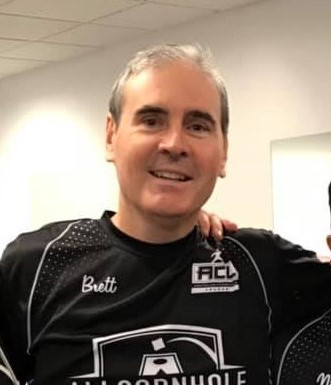
Contact Information
Name: Brett Holland
Title: Professor
Office Location: TSC 5015
Email: holland@csus.edu
Mailing Address: CSUS, 6000 J Street Sacramento, CA 95819-6043
Office hours : Use this link to schedule a meeting
Student Resources at CSUS
Summary of student resources.docx
Courses
- BIO 20. Biology: A Human Perspective. Introduction to biological concepts with emphasis on their application to humans. Topics include: Evidenced-based decision making with respect to food, nutritional supplements, drugs, pathogens, and biotechnology. How heredity and evolution contribute to our understanding of personality, sex, behavior, addiction, disease, and aging is also discussed. Lecture three hours. Note: Not open to majors in biological sciences and/or students who have received credit for BIO 10. Graded: Graded Student.Units: 3.0
- BIO 188. Evolution. General survey of evolutionary processes: mechanisms of evolutionary change, adaptation and history of life. Designed for biological sciences majors. Lecture three hours. Prerequisite: BIO 184 or instructor permission. Graded: Graded Student. Units: 3.0
- BIO 282. Evolution. Process of evolution throughout the taxonomic hierarchy and factors responsible for the generation of variability of the gene, cell, organism and population levels are explored through lectures, text readings and a survey of current periodical literature. Prerequisite: Graduate standing. Lecture 3 hours. Graded: Graded Student. Units: 3.0
Publications
Cabral L.G. and Holland B. 2014. Courtship Song Does Not Increase the Rate of Adaptation to a Thermally Stressful Environment in a Drosophila melanogaster Laboratory Population. PLoS ONE 9(11): e111148. doi:10.1371/journal.pone.0111148
Rice, W.R. and B. Holland. 2005. Experimentally enforced monogamy: Inadvertent selection, inbreeding, or evidence for sexually antagonistic coevolution? Evolution 59:682–685.
Stemmer, W., and B. Holland. 2003. Survival of the Fittest Molecule. American Scientist 91:526-533.
Holland, B. 2002. Sexual selection fails to promote adaptation to a new environment. Evolution 56:721-730.
Pitnick, S., G.T. Miller, J. Reagan and B. Holland. 2001. Males’ evolutionary response to experimental removal of sexual selection. Proceedings of the Royal Society B 268:1071-1080.
Holland, B. and W.R. Rice. 1999. Experimental removal of sexual selection reverses intersexual antagonistic coevolution and removes a reproductive load. Proceedings of the National Academy of Science 96:5083-5088.
Rice, W.R. and B. Holland. 1999. Reply to comments on the chase-away model of sexual selection. Evolution 53:302-306.
Holland, B. and W.R. Rice. 1998. Perspective: Chase-away sexual selection: antagonistic seduction versus resistance. Evolution 52:1-7.
Rice, W.R. and B. Holland. 1997. The enemies within: intergenomic conflict, interlocus contest evolution (ICE) and the intraspecific red queen. Behavioral Ecology and Sociobiology 41:1-10.
Holland, B. and W.R. Rice. 1997. Cryptic sexual selection – more control issues. Evolution 51:321-324.
Research Interests
My work focuses on the evolutionary genetics of sexual selection (the outcome of mate choice and competition over mates). With collaborators, I have conducted experiments estimating costs and benefits of sexual selection in Drosophila melanogaster and have proposed a general hypothesis for the evolution of courtship, via genes that act in a sexually antagonistic manner (good for one sex but at the expense of the other) see, Chase-away, below. Specifically, males sometimes appear to exploit female sensory systems in a way that is analogous to manipulative advertising (e.g., through increased volume or vivid coloration of an ornament), at a cost to females. This selects those females who have reduced sensitivity to those ornaments. This counter selects those males who have even more stimulating ornaments. Current interests center on evaluating the Chase-away hypothesis through experimentation and literature analysis. Students are welcome to inquire about research opportunities.
Former Students
Emily Pavia, M.S. 2017. Thesis: Sexual Conflict in Drosophila melanogaster: Is there evidence of an optimal female mating rate? Currently, Instructor at CSUS.
Yukiharu Miyashige, M.S. 2013. Thesis: Is There a Benefit of Sexual Selection in a Competitive Environment in Drosophila Melanogaster?
Ninnie Abrahamsson, B.S. 2009. Bachelors Thesis, U. of Gothenburg: Chase-Away Sexual Selection - The Value of an Exaggerated Character
Larry Cabral, M.S. 2007. Thesis: The Truth Behind Wing-Song: Testing the Good-Genes Theory in Drosophila Melanogaster. Currently, doctoral student at UC Irvine
Colin Cotino, ABT. Currently, doctoral student at UC Davis